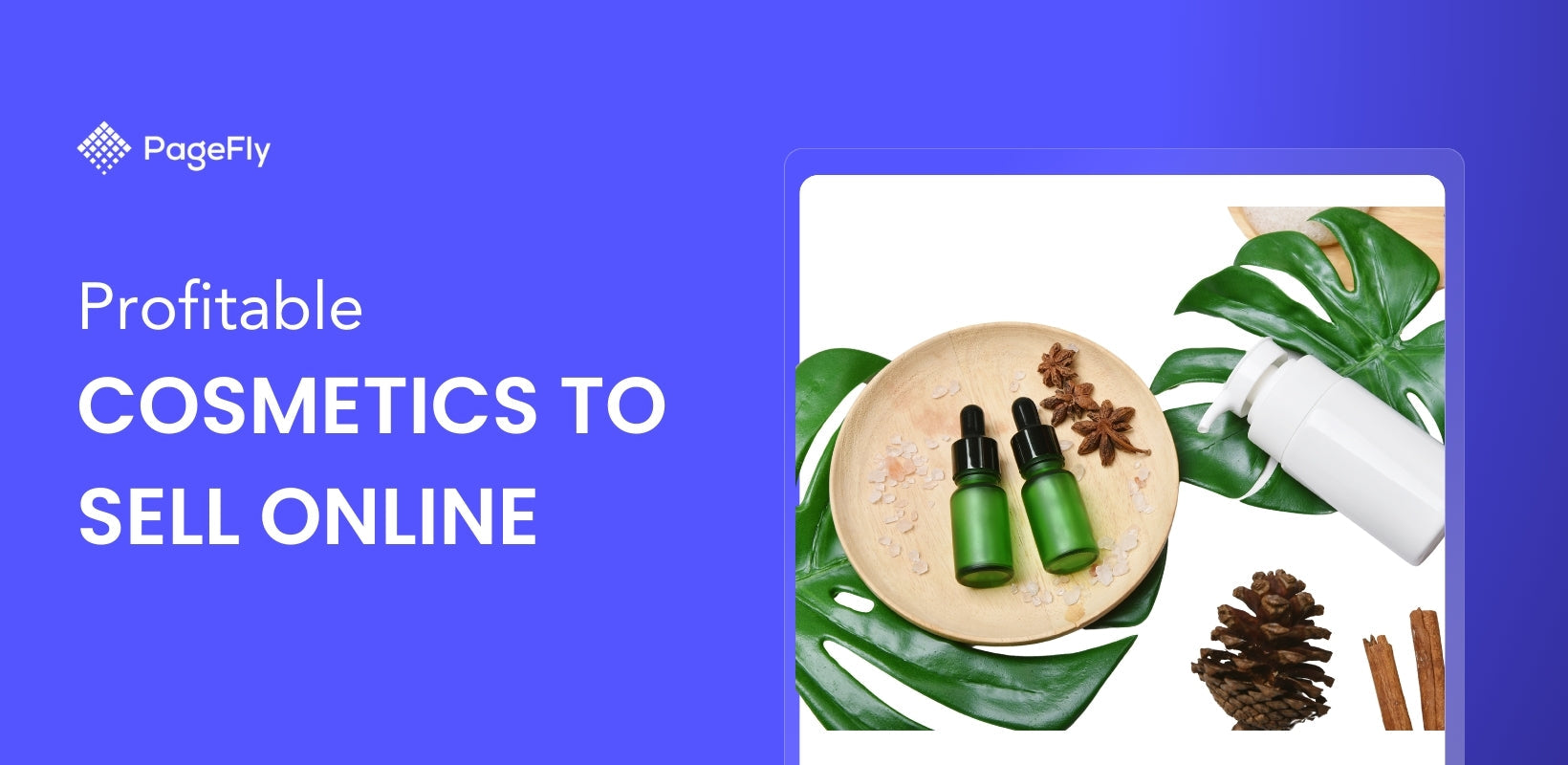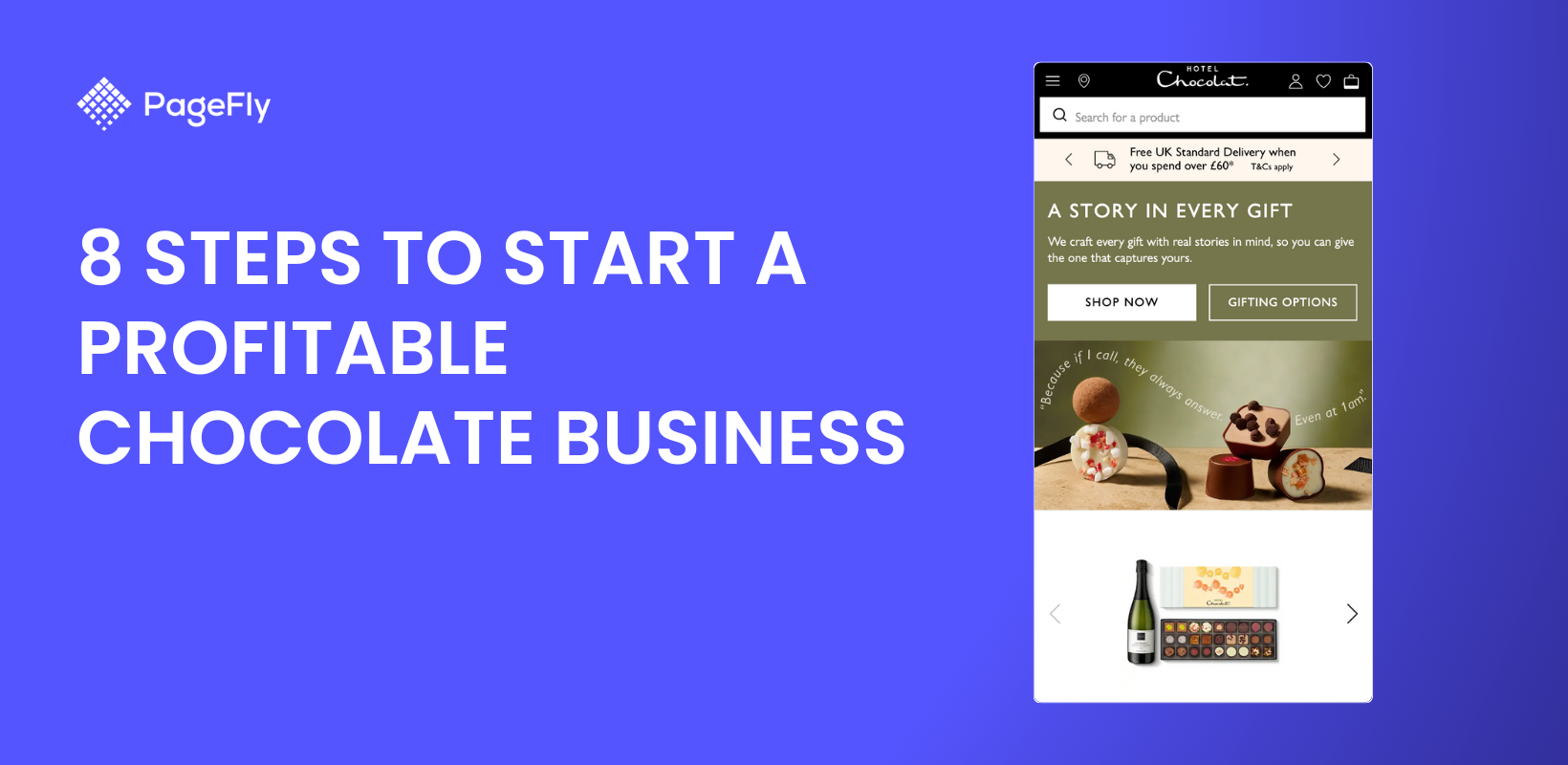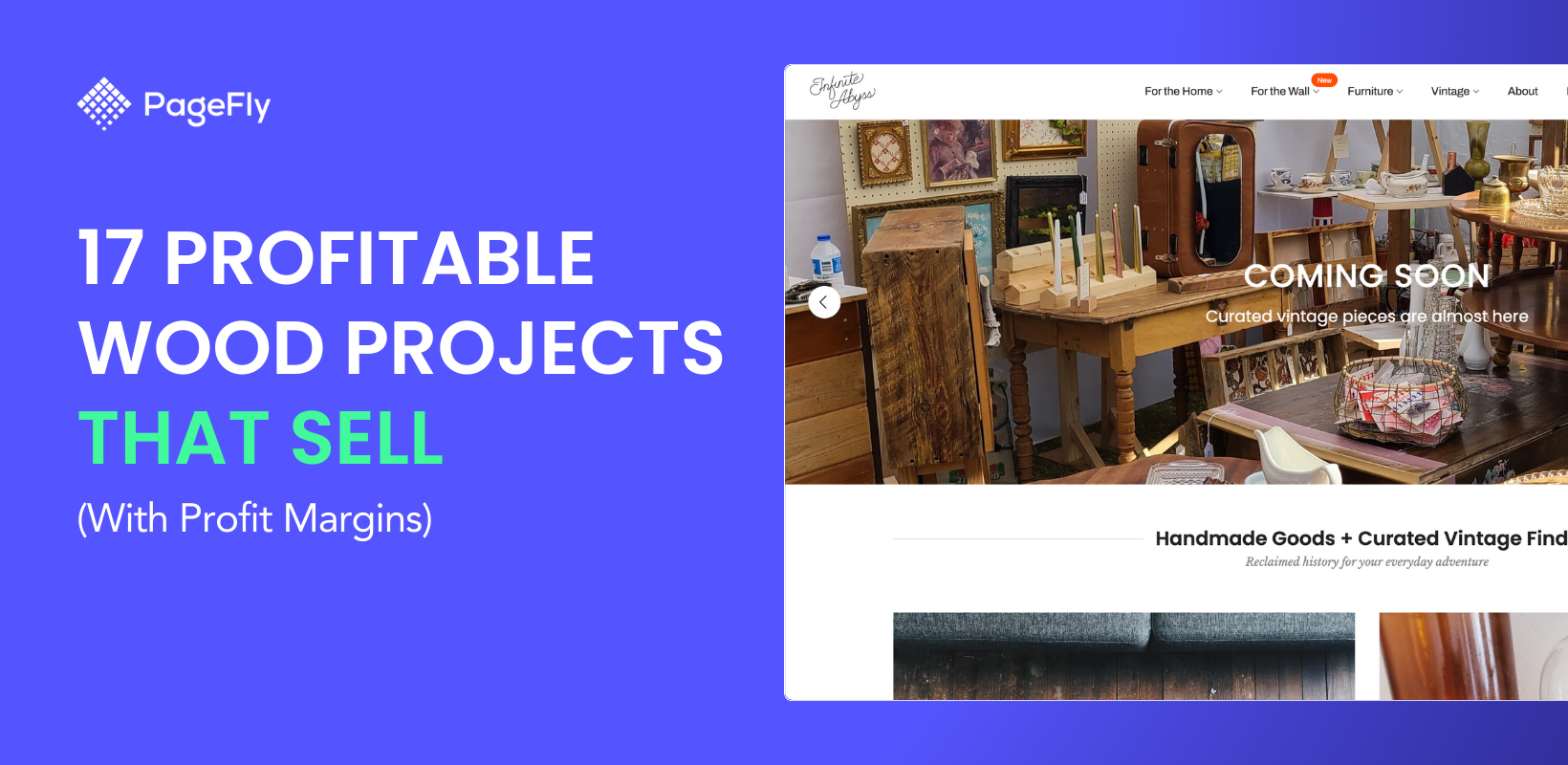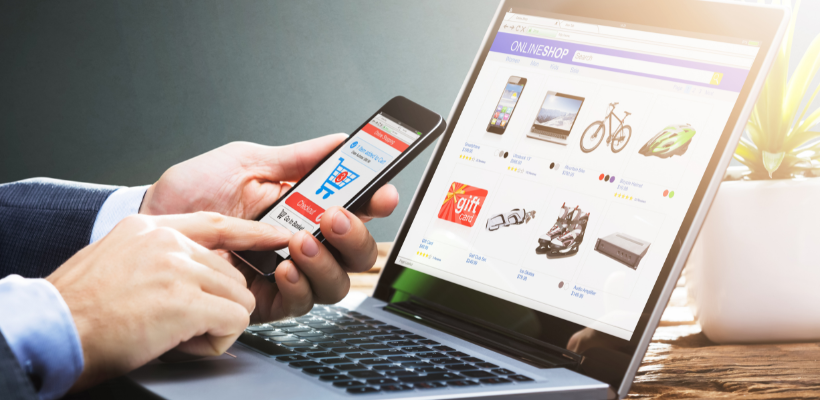If you’re looking to start an ecommerce business right now, white label products can be an attractive option.
Because these products are instantly available, relatively cheap to produce, and sellable in many different niches, they’re a favorite for people that want to get into ecommerce right away.
If you’re new to white label products or want to take a deeper look at the benefit they can bring to your ecommerce store, you’re in the right place.
We’ll explain all you should know about white label items here, including how they compare to custom products and the best white label products to sell in 2023.
Outline
- What Are White Label Products?
- White Label vs Custom Products
- Is It a Good Idea to Sell White Label Products?
- Immediate entry into the market
- Access to potentially cheaper products
- Plentiful suppliers and options
- Easy-to-sell products with established demand
- What Are The Best White Label Products to Sell in 2023?
- Phone accessories
- Fashion accessories
- Body and beauty
- Stationery
- Tee shirts
- Backpacks
- Reusable water bottles
- Home and kitchen gadgets
- Health and wellness
- Where to Source White Label products
- Conclusion
What Are White Label Products?
White label brands or store brand products are generic items that are mass manufactured for sale by anyone. They are usually produced by one manufacturer who then sells them to various companies that resell using their own branding.
If you’ve ever bought from Walmart’s Great Value brand or sampled something from Target’s Cat & Jack, then you’ve had an experience of white label products.

Source: Walmart
While these items carry the name and logo of a well-known brand, they start life as generic goods produced for mass consumption.
For many entrepreneurs, white label products offer a chance to start selling without needing to spend months or even years creating and finetuning their own product.
This lets them tap into the expertise of the manufacturer and rapidly respond to market trends and consumer demands. That’s also why it’s such a great option for those who want to get into dropshipping.
White labeling and print-on-demand
White labeling typically goes hand in hand with print-on-demand. Here’s how it works: You’ll start by placing an order with a white label manufacturer.
In some cases, the manufacturer will also offer printing services that let you affix custom labels, names, or logos on the products. In other cases, you’ll work with a print-on-demand company like Printify or Printful.
After the printing services, your products will be ready to ship to your warehouse or directly to the consumer.
Alongside the increasing popularity of white label branding, print-on-demand services are also growing. The print-on-demand market is predicted to expand by 26.1% between 2022 and 2030.
White Label vs Custom Products
You may have heard white label products being referred to as private label brands or custom branded products. While these terms are similar, they’re not exactly the same.
For example, private label products are a category of white label items that are packaged and sold exclusively under one retailer’s brand.
With private labels, you won’t find that specific brand anywhere other than the retailer’s store. Great Value and Cat & Jack are excellent examples of private label products.
On the other hand, custom products are produced specifically for one retailer. The retailer may propose adjustments to the specifications or process used in manufacturing that item. As a result, custom products are unique compared to white label goods.
Here’s a run down of some of the differences between white label and custom made goods:

- Branding and identity: White label products are unbranded by nature. Sometimes they never carry a brand name, even when you purchase them in the store. More often, white label items only receive your own brand name when they’re ready for sale. Comparably, custom products are made with a specific brand in mind and they carry a set identity from the point of production till sale.
- Cost implications: It’s much more expensive to develop custom products than it is to buy white label items. One reason why this is so is because the manufacturer will charge more to plan, test, and implement your ideas for the custom product. Meanwhile, you don’t incur any of these costs for white label products since you’re not involved in the production process.
- Creation process: It takes far longer to create custom products than it takes to produce white label goods. There’s a lot of ideation, prototyping, and discussion involved in generating custom made goods. Unlike custom items, white label products have a proven production process that usually takes less time to execute.
- Brand building: As you can imagine, being able to dictate how your products are made provides an excellent opportunity to build your own brand. As a result, custom products let you direct and enrich the customer experience in ways that may not be possible with white label products.
Overall, if you’re considering your best choice between white label items, private label products, and custom goods, you should think about your business goals and the resources you have. While white label products offer speed and cost savings, custom items provide differentiation and an opportunity to create a new buyer experience.
Is It a Good Idea to Sell White Label Products?
Selling white-label products can be a lucrative business strategy. It offers numerous advantages for new and existing business owners such as the ability to gain market-ready products with established demand, cost-effective supply, and readily-available suppliers.
Immediate entry into the market
One of the most significant advantages of white label products is the ability to start selling immediately. Quick launches are especially key in the fast moving private label market which shipped roughly 58 billion items in 2021 (Source: statista).
Since they are developed and manufactured by experienced producers, you can rapidly launch your business selling these products without spending time and money developing new goods. This rapid entry helps you capitalize on market opportunities and gain a competitive edge.
Access to potentially cheaper products
With white label products, you gain access to goods at a lower cost compared to developing one from scratch or licensing a well-known brand.
By using manufacturers who specialize in white label designs, you can take advantage of economies of scale, a streamlined production process, and bulk purchasing.
It also translates into better profit margins for you. This is especially key in grocery focused stores where margins can be as thin as 1.3%. In comparison, it’s possible to earn a margin up to 25% or 30% on private label grocery items.
Plentiful suppliers and options
White label manufacturers and products are available everywhere. This abundance of suppliers means that you have the flexibility to choose the best supplier based on your requirements like quality, pricing, production capacity, and delivery timelines.
The competitive nature of the white label market also encourages suppliers to continuously improve their offerings. This way, there’s always a diverse range of high-quality products to choose from.
Easy-to-sell products with established demand
White label products include items that see a lot of buyer demand. For example, items like water bottles, coffee, and plain tee shirts are staples that everyone uses.
By selling these goods, you can tap into the proven market for white label goods. An upside of this is the goods are easier and faster to sell because your customers already know the products and their benefits.
That said, you should keep in mind that you’ll have to do a lot of groundwork in order to enjoy these benefits. It’s important to carefully assess the market demand for your preferred product, the competitive landscape, and potential profit margins.
Also, make sure to work with only reputable manufacturers that guarantee consistent product quality and timely delivery.
What Are The Best White Label Products to Sell in 2023?
With the basics sorted, let’s consider some of the best white label products to sell in 2023. If you’ve been seeking inspiration on what items make the most sense for your business, consider taking a closer look at some of the items on this list.
Phone accessories
Roughly 64.4% of the world’s population — or 5.18 billion people — used the internet as of April 2023. And a sizable portion of those individuals uses smartphones.

Source: Oberlo
With the increasing reliance on smartphones, phone accessories are in high demand. Everything from phone cases to stickers, screen protectors, power banks, and earpods are big hits on the white label scene.
According to market statistics, the global phone accessories market is projected to reach $116 billion by 2027, making it a lucrative sector for white-label products.
Fashion accessories
Fashion accessories such as jewelry, watches, sunglasses, and handbags are popular among consumers. They also attract a lot of white label attention because they can be easily produced with different specifications and price points.
These products also have the added value of being in tune with the seasons. New styles always wax and wane with the seasons, giving you an opportunity to follow the best and most profitable trends.
The market is also constantly growing, as evidenced by industry reports which valued the market at $182 billion in 2021 (with an annual growth rate of 15.7% till 2028).
Body and beauty
The body and beauty industry is experiencing significant growth, with consumers seeking natural and personalized products.
You’ll have the opportunity to participate in selling products like essential oils, organic creams, mind and body supplements. However, remember to only sell products that have the necessary regulatory approvals and certifications for human use.

Source: Pexels
Stationery
Despite the digital age, stationery remains a thriving market. Items like monogrammed pens and lovely notebooks make especially thoughtful gifts.
Stationery items are also relatively inexpensive to produce, so they’re an excellent candidate for white labeling.
According to industry reports, the global stationery products market is projected to reach $115 billion by 2025 (Source: businesswire). White-label stationery products, such as notebooks, pens, and planners, offer customization options and appeal to various demographics.
Tee shirts
Tee shirts are popular for various uses, from conference merchandise to team bonding gifts and more. Due to this, there’s great demand for white label shirts that can be easily customized using personal/business logos, images, and messaging.
The global market for tee shirts continues to expand, driven by fashion trends, promotional merchandise, and casualwear. Revenue in the market is projected to be about $44 billion in 2023, which showcases just how in-demand these items are.
Tee shirts are versatile, appealing to both individuals and businesses, and they also provide an opportunity to start up your own clothing brand.
💡 Quick Read - How To Start A Hoodie Business
Backpacks
Backpacks are essential accessories for students, travelers, and outdoor enthusiasts. While there are many well-known brands on the market, these items offer avenues for white labeling and private labeling.
There’s also an excellent avenue for profit on white label backpacks. The market for these items was worth $14.6 billion in 2021 and is set to reach $31 billion by 2030.

You can play around with designs from various white label manufacturers and offer your customers stylish and functional products they can adapt for daily use.
Reusable water bottles
With the increasing focus on sustainability and curbing environmental waste, reusable water bottles have gained significant popularity. They’re also a hot commodity amongst all age groups and customer demographics.
They make perfect office swag items and have the added value of contributing to a cleaner more sustainable environment.
Getting into the water bottle market can also be profitable. As statistics show, the global market for reusable water bottles is projected to reach $10 billion by 2025 with annual growth rates of 3.7%.
Home and kitchen gadgets
Home and kitchen gadgets are a market staple as consumers are constantly seeking innovative and convenient solutions for their homes. Although the space is mostly dominated by large brands, there’s more than enough space for your ecommerce store to thrive.
Kitchenware is one segment of these products that’s doing especially well, with a market value amounting to $17 billion in 2023.

From smart home devices and kitchen appliances to cleaning tools and organization products, there are many items you can sell to help meet customer needs for practical and time-saving solutions.
Health and wellness
The health and wellness industry is experiencing a significant boom, driven by consumers' increasing focus on personal health and well-being. With growing awareness of the importance of nutrition and fitness, there is a rising demand for high-quality supplements.
White-label health and wellness supplements that you can sell include vitamins, minerals, herbal extracts, and sports nutrition products. Dietary supplements are especially popular, with the market for these items expected to reach
The global dietary supplements market is expected to reach $72 billion by 2026, making it a promising sector for white-label products.
>>> You may want to know trending niches
Where to Source White Label products
White-label products offer a compelling opportunity for you to expand your product offerings, increase profitability, and meet customer demands. But you won’t gain all those benefits if you don’t know where to go to find products that you can sell.
Here’s a roundup of the most popular locations to source white label products.
Printify
While it’s primarily a print-on-demand platform, Printify offers access to third-party suppliers who will produce, package and ship your products. Printify also has a Shopify app where you can create designs to add to your products and outsource the customer fulfillment process.

Printful
Similar to Printify, Printful lets you create designs, place them on white-label goods and ship them to customers hassle-free. You’ll gain access to top-notch fulfillment services, which makes it an optimal option if you’re considering dropshipping.

Alibaba.com
Unlike the first two options, Alibaba.com links you directly to wholesale suppliers offering products of all types. Whether it’s fashion, stationery, wellness, or any other major white label item, you’re likely to find a manufacturer that fits your needs on this platform.

AliExpress
AliExpress is just like Alibaba.com but is suited more for retailers. It offers access to mostly Asia-based suppliers with manufacturing operations for many product types.

Conclusion
White label products offer a great option if you’re looking to start selling a profitable product quickly. That’s why it’s attractive to many business owners globally.
With the benefits it provides, such as rapid market entry and access to cheaper products, you can move faster than competitors and enjoy better profit margins. But remember that benefiting from these products requires using a trustworthy manufacturer with high product standards.
It’s also a great idea to sell from your own digital storefront. This way, you can shape the buyer experience and build a trusted brand while enjoying the benefits of selling white label products. If you’d like to create your own ecommerce store, sign up for a Shopify account to get started.




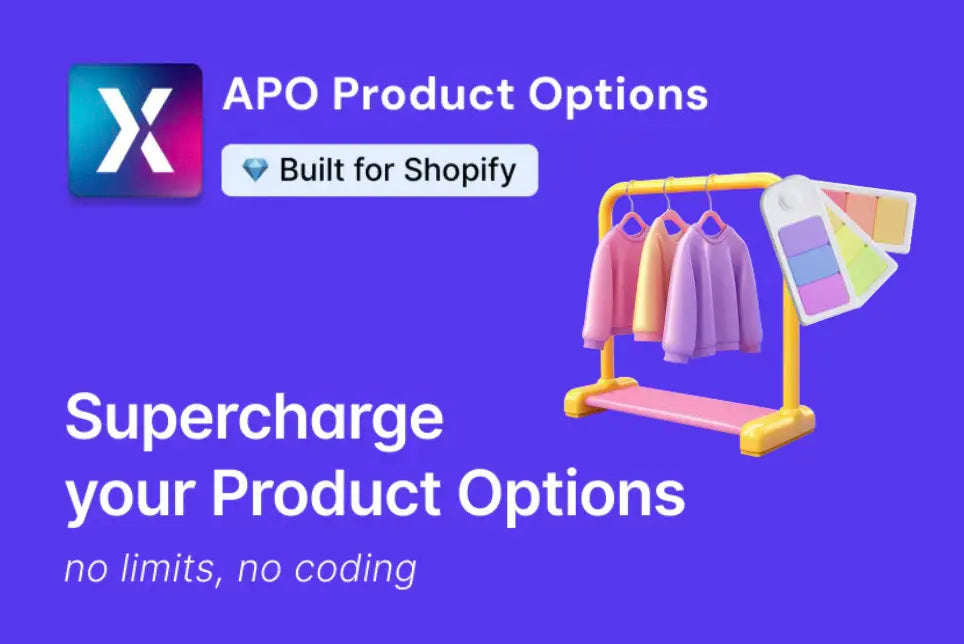


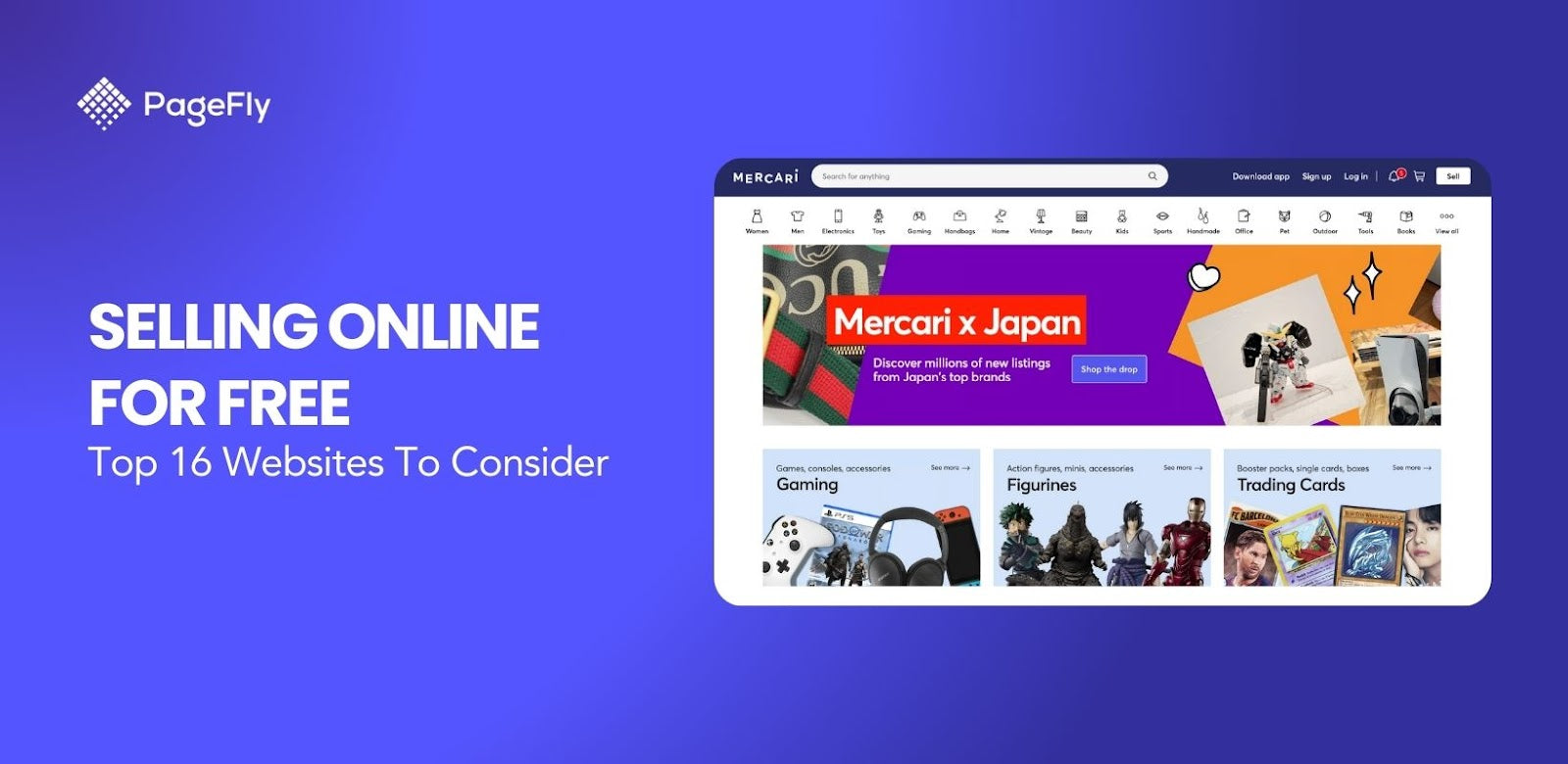
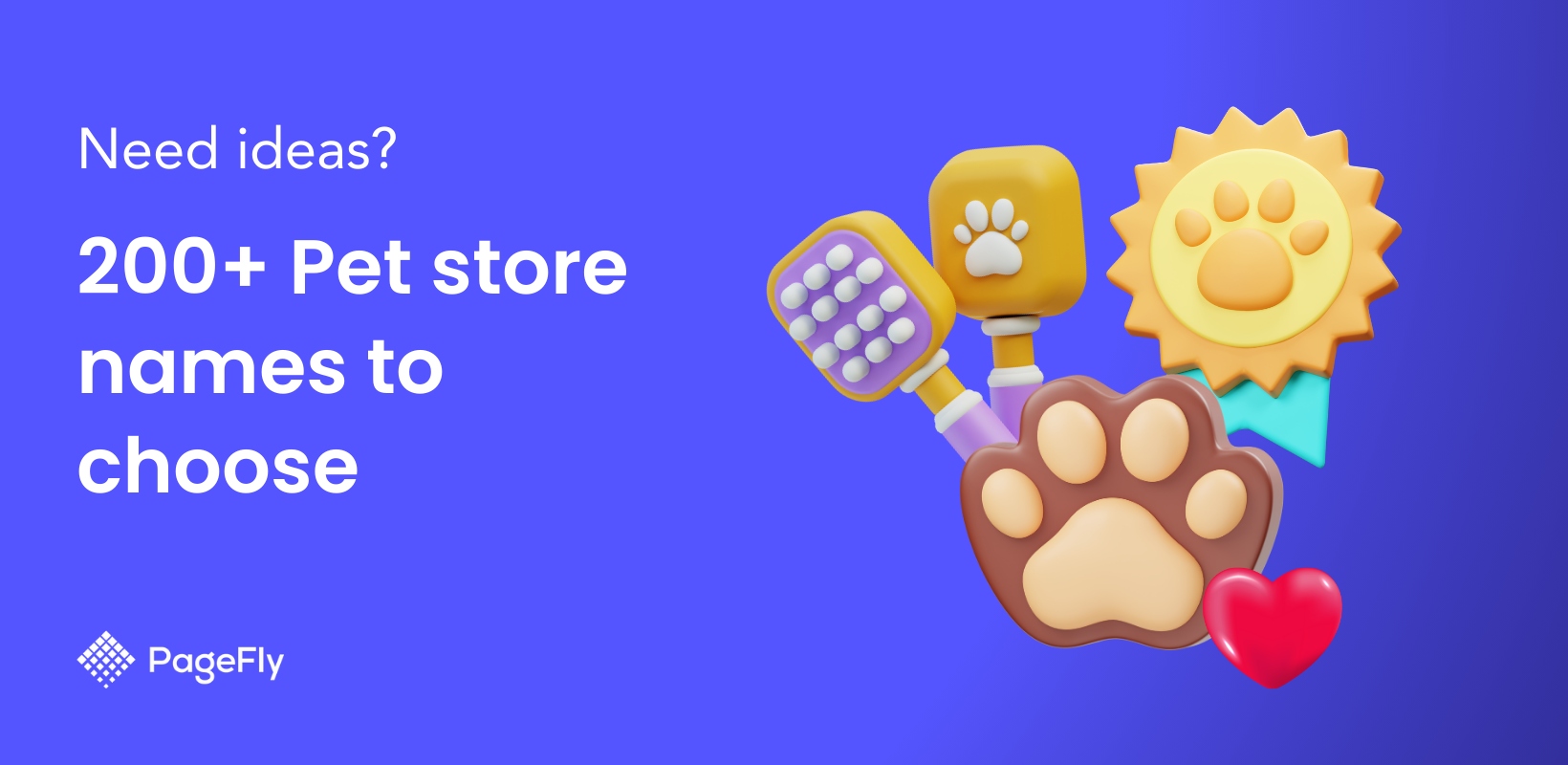
![14 Profitable Small Food Business Ideas for 2025 [Real Numbers]](http://pagefly.io/cdn/shop/articles/1_58b587d2-13db-4aa6-8c19-e40f5c88d3eb.jpg?v=1758255771&width=4460)
![Art Business Names: 350+ Ideas + Free Generator [2025 Updated]](http://pagefly.io/cdn/shop/articles/art_business_name_e94a54e9-d325-4ba3-94ab-7b4297952312.png?v=1760062968&width=1640)
